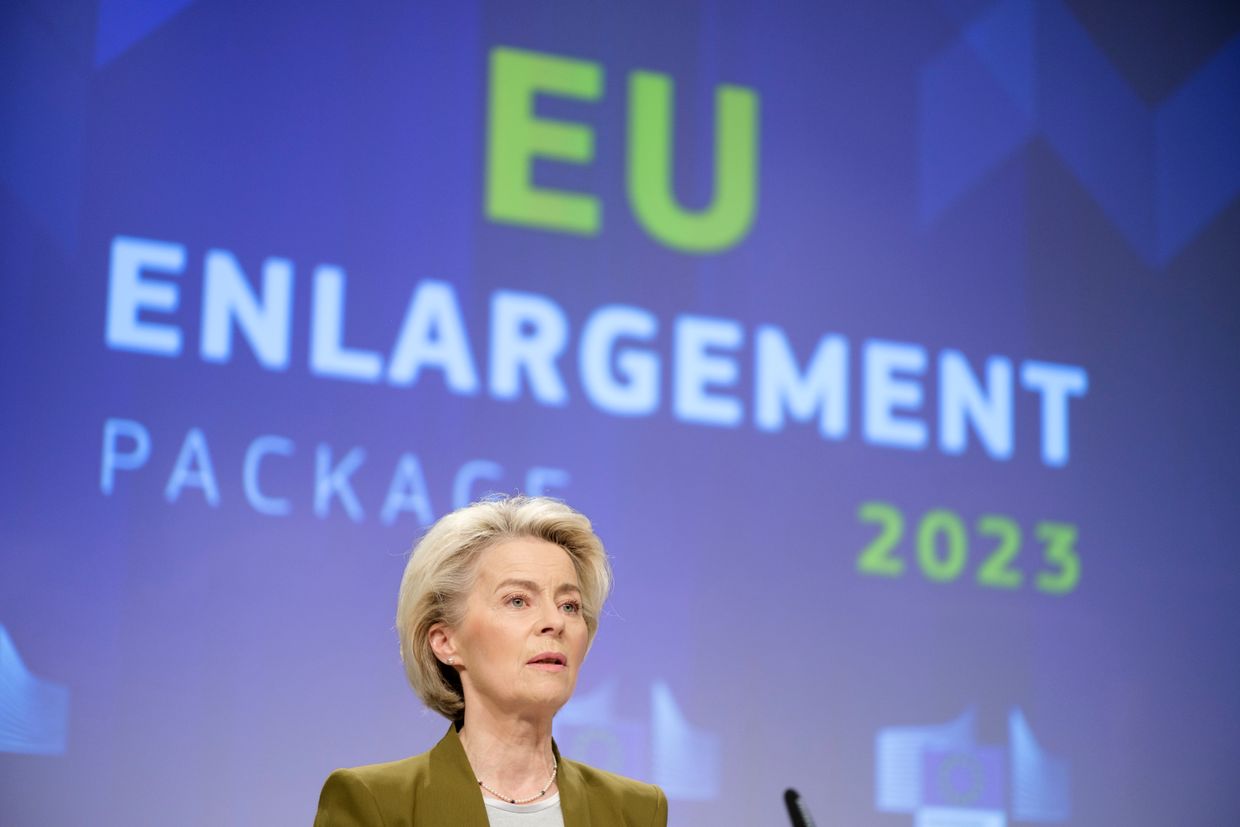Zelensky signs 4 laws required for EU accession

President Volodymyr Zelensky signed on Dec. 8 three laws related to Ukraine's fight against corruption and the updated law on national minorities required for the country's accession to the European Union.
However, the law on reforming the Specialized Anti-Corruption Prosecutor's Office (SAPO) signed by Zelensky failed to fully repeal the so-called Lozovyi's amendments, which are thought to help those suspected or accused of corruption to avoid responsibility.
The law aims to increase the SAPO's independence by making it a separate body of the Prosecutor's Office and improving its selection procedure for administrative and prosecutor positions, among other measures.
Ahead of a parliamentary vote on the bill, the Group of Seven called on Ukraine to repeal Lozovyi's amendments to strengthen anti-corruption efforts, but some lawmakers and anti-corruption activists complained that it was done only partially.
According to the NGO Anti-Corruption Action Center, the approved version of the law cancels Lozovyi's amendments only in part "that will not have a significant impact on the closure of the current most high-profile corruption cases."
"The shameful version of the draft law adopted by the Verkhovna Rada (Ukraine's parliament) is a product of the presidential faction," the NGO said.
"After signing the draft law in this form, every closed case against a corrupt official will become the direct responsibility of President Zelensky."
On the same day, Zelensky signed laws on increasing the staff of the National Anti-Corruption Bureau of Ukraine (NABU) and extending the powers of the National Agency on Corruption Prevention (NACP). He also approved new changes to the law on national minorities.
According to the new laws, the maximum number of NABU's staff will be increased from 700 to 1,000, while the NACP will be allowed to inspect properties acquired by officials before their appointment to the service and assets previously inspected by other bodies.
The updated law on national minorities implemented the latest recommendations by the Council of Europe on the use of minority languages in Ukraine.
Ukraine officially applied for EU membership in late February 2022, just following the beginning of Russia's full-scale invasion. The country was granted candidacy status in June and presented with seven criteria it needs to fulfill in order to begin the talks.
In a historic decision, the European Commission recommended formal talks on Ukraine's EU membership on Nov. 8 but requested that Ukraine still make more progress in some reforms.














